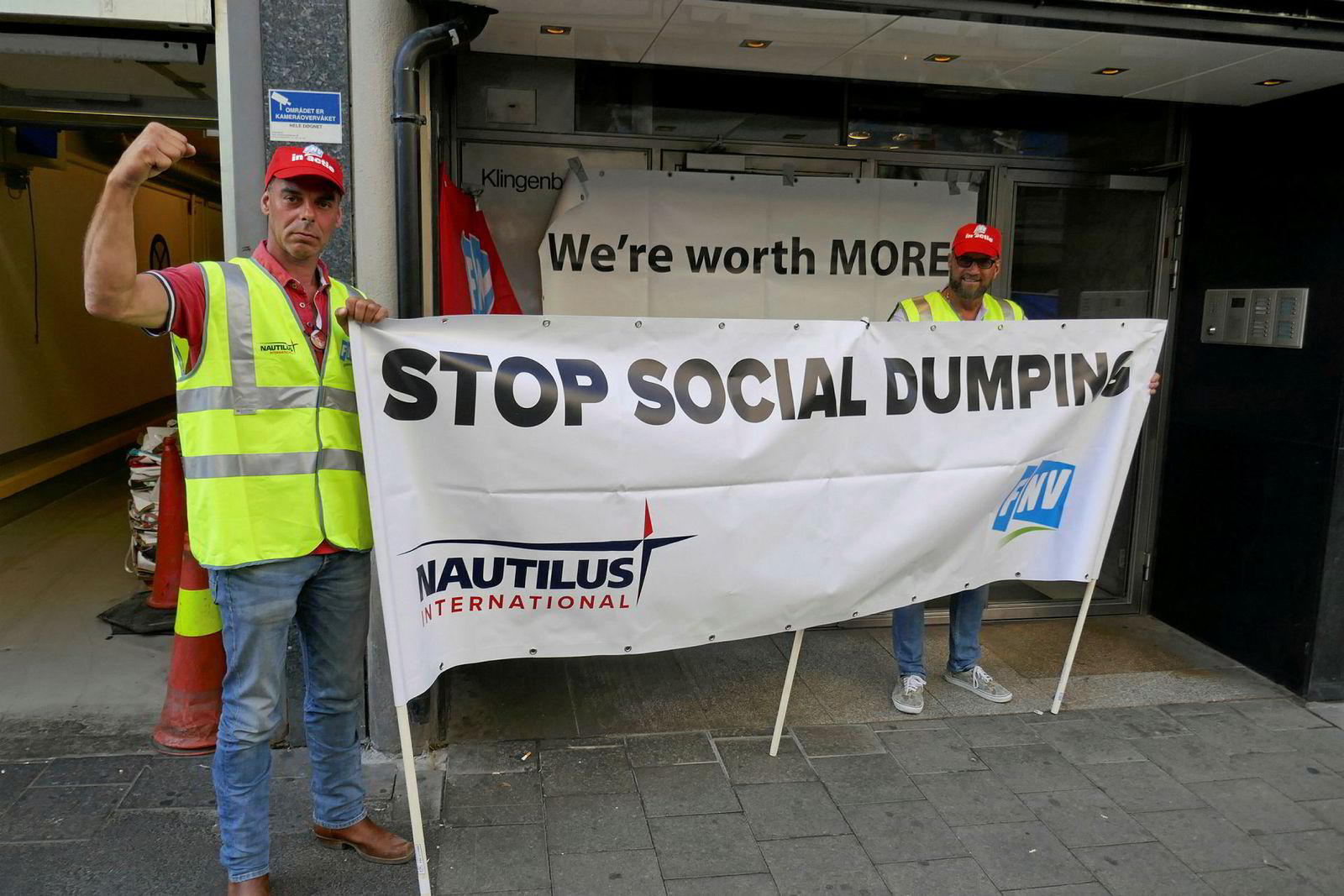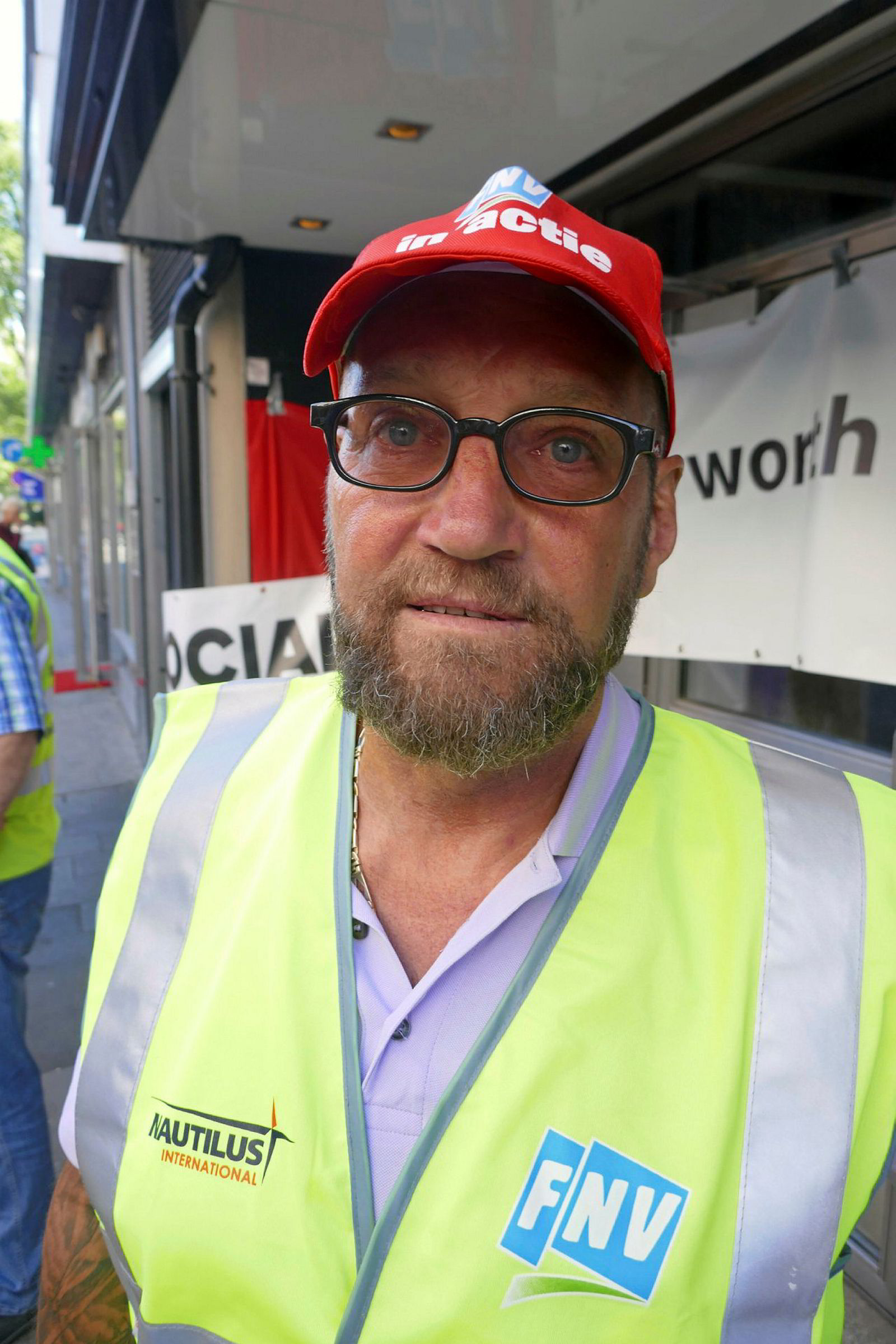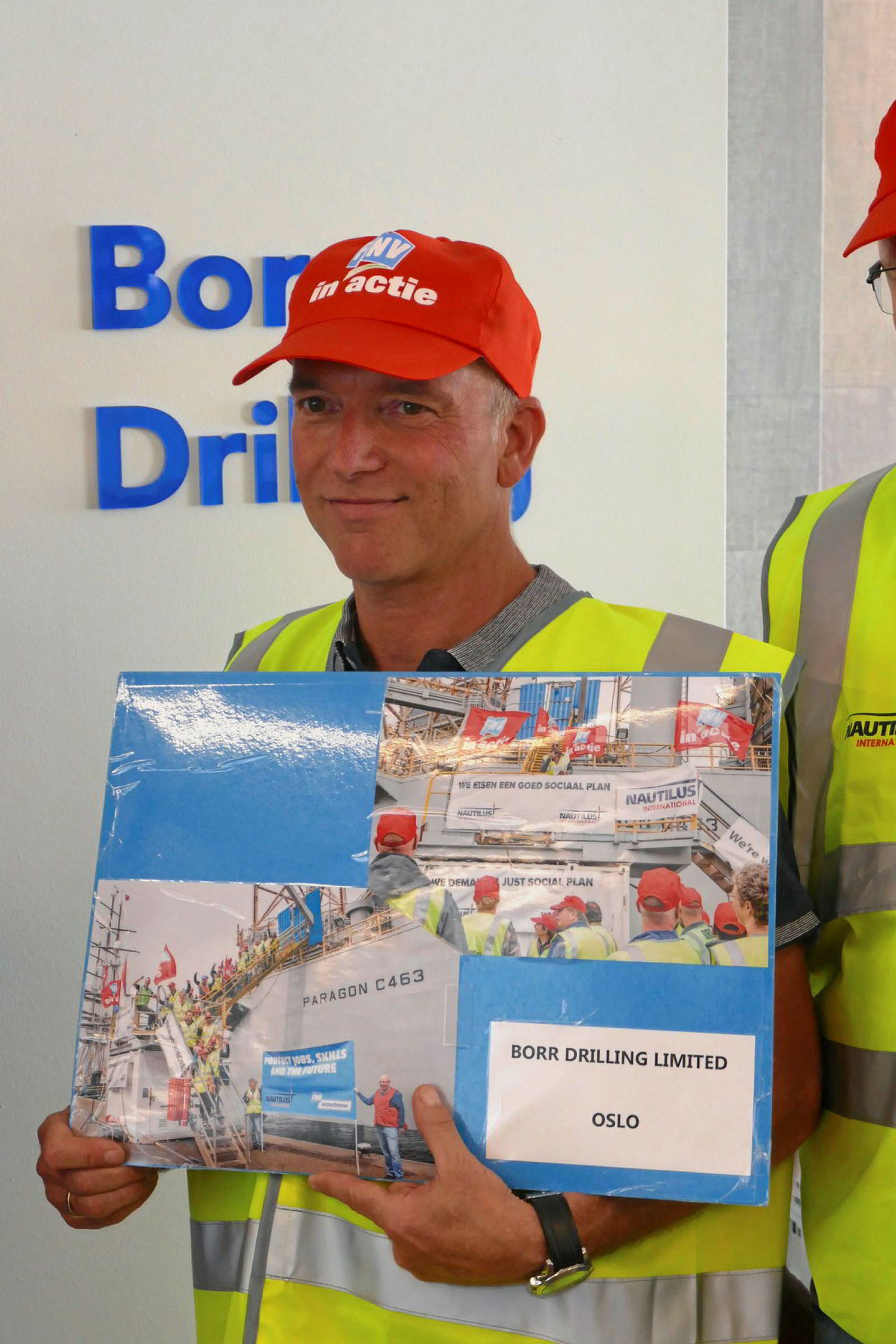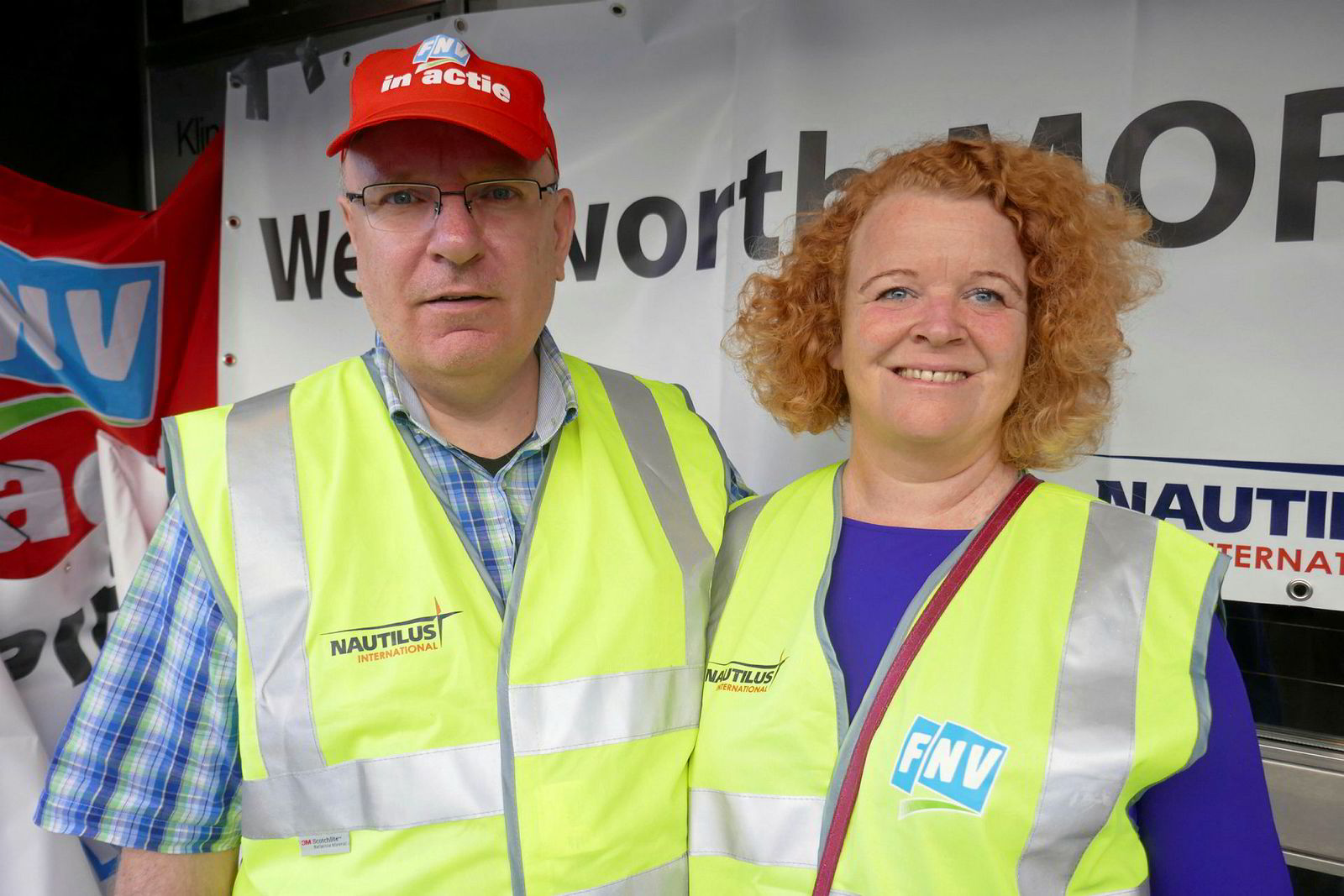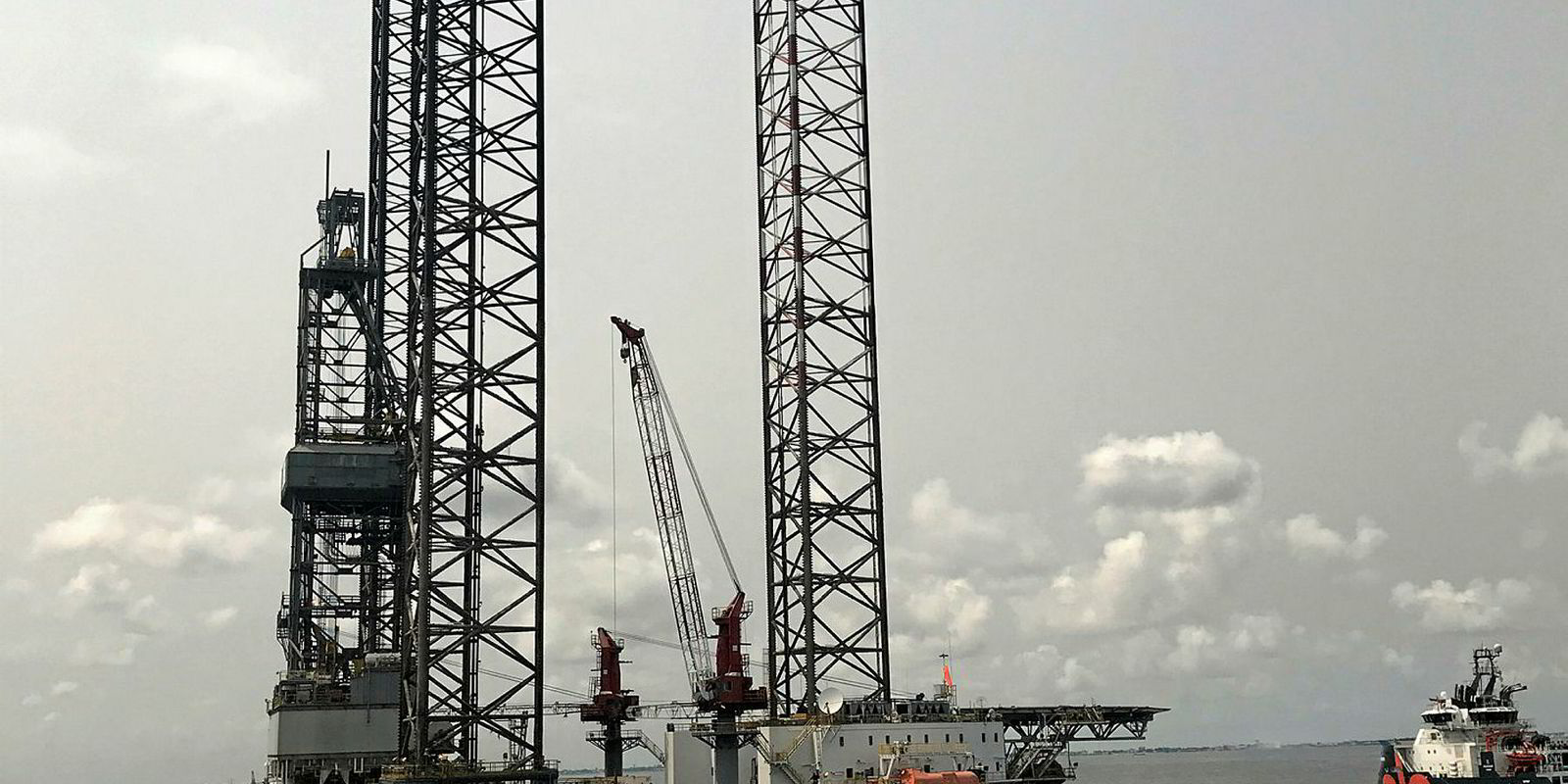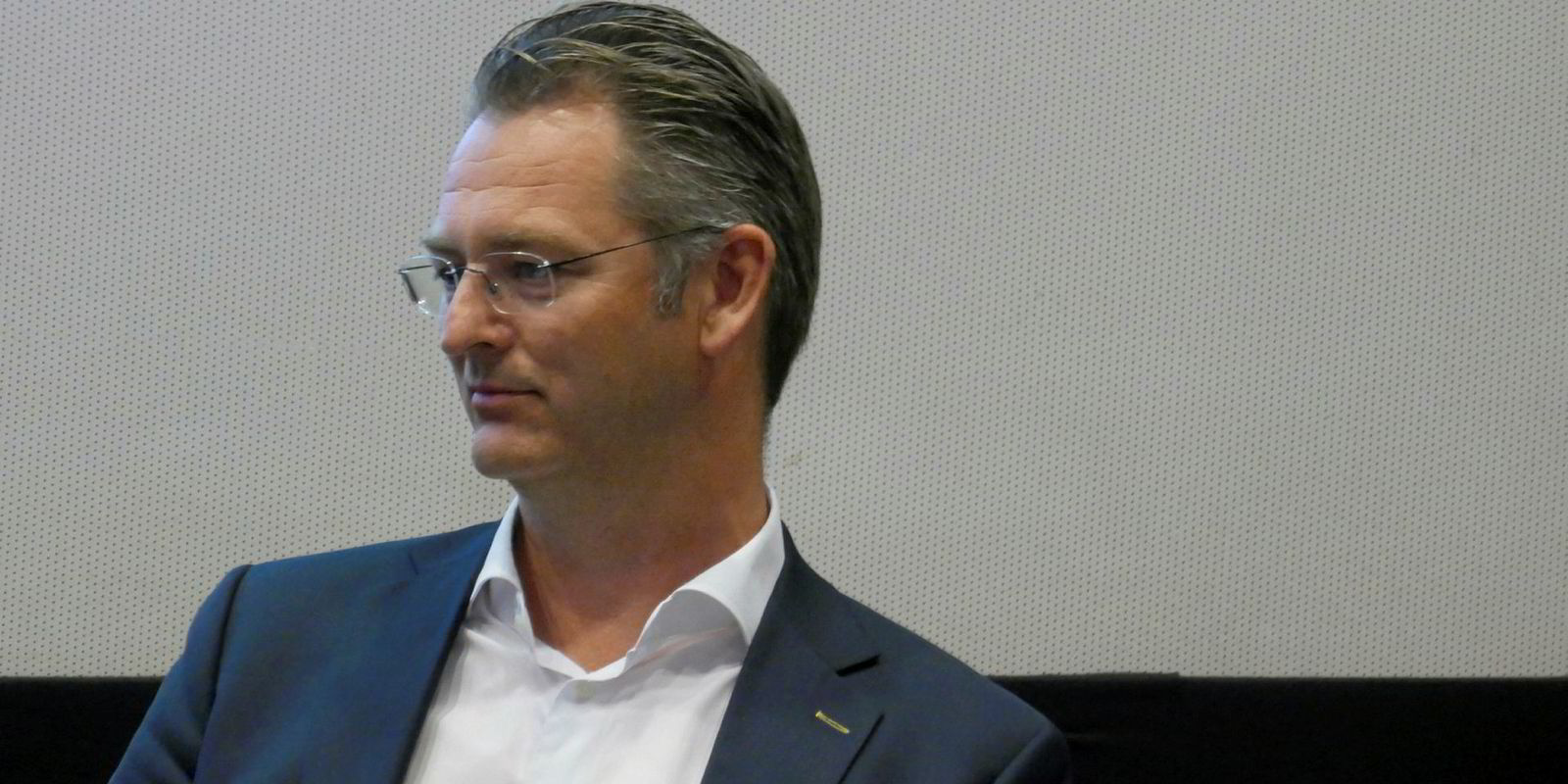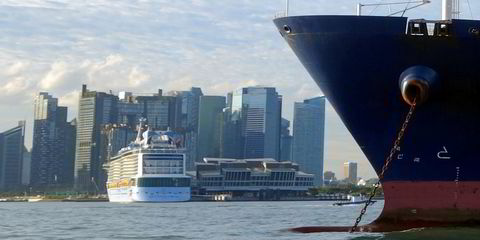Tor Olav Troim did not show up last week in Oslo to accept a hand-delivered petition accusing his Borr Drilling of “social dumping” and offering the “cheapest of the cheapest” severance packages at subsidiary Paragon Offshore in the Netherlands.
The petitioners say Borr has failed to live up to Norway’s reputation for high standards in corporate social responsibility.
“I worked for years in Norway, where it was excellent salaries [and] everything was proper, done and dusted. So the moment we found out Borr, as a Norwegian company, was going to take over Paragon, I was the first one to say, 'we’ve got it made',” Paragon offshore installation manager (OIM) Marco Vosse, 51, told TradeWinds at the event.
“But it has been completely the opposite. They are almost antisocial. They are hardly talking to us. They tell us to take it or leave it. There’s nothing to take.”
“I’ve been working 33 years offshore and 27 years at the company. The plan Borr has to get rid of us is paying the cheapest of the cheapest. I’m not going away for the cheapest-cheapest, because on one side they want to hire new people and on the other side they want to dump their experienced people.”
The six-person deputation, representing more than 70 employees facing redundancy, had hoped to present their petition to chairman Troim, or director Fredrik Halvorsen. But no Borr executives were on the premises.
Borr office staff, one of whom told TradeWinds they had known about the planned visit “for weeks”, were polite hosts and granted immediate entry to the equally polite group. Three were officers from maritime trade union Nautilus and three were employees with nearly 90 years between them at Paragon and its forerunner companies.
Paid for their own travel
Paragon OIM Peter Mik, 61, said the group was fairly limited in size because employees had to pay their own travel expenses in the attempt to reach out to Troim and Halvorsen in person.
Ironically, these Paragon colleagues nearly ended up in Troim’s hands before because many were with Neddrill, once part of the former Royal Nedlloyd.
Troim’s former employer, the Fredriksen group, lost a bidding match with Noble Drilling to purchase Neddrill in 1996. Noble later spun off some of the former Neddrill assets and employees as a debt-laden Paragon in 2014, when the offshore downturn was taking a heavy toll on the sector.
Along with Paragon’s exit from Chapter 11 bankruptcy proceedings in 2017 and the elimination of $2.3bn in debt, the Paragon employees also agreed to compensation cuts to help pull the company through, Nautilus said.
Troim entered the picture again when he famously began building up Borr with distressed purchases in 2016, reaching a fleet of 29 premium rigs and total assets of $2.14bn, as of March. Borr, which completed its acquisition of Paragon this year, has repeatedly stated that the company is “a solid operational platform”, which supports the petitioners’ claim that Borr wanted it primarily for its know-how.
'Out of the blue'
“Paragon came out of Chapter 11 as a financially healthy company and then Borr said they were going to buy us because they needed our expertise. They were building up, had all the rigs but no expertise to run them so we were happy chappies. Then, suddenly, they came up with a redundancy plan out of the blue,” Mik said.
Mik said that even while Borr is making him and his colleagues redundant, it has advertised vacancies in similar positions, such as rig managers and OIMs.
Mik added that the advertisements were removed from Borr’s website soon after he applied himself. Three Nautilus representatives — executive officer Sascha Meijer, industrial officer Bert Klein and communications advisor Hans Walthie — all describe the same circumstances for their posts. Meijer said the union believes Borr is moving to fill its ranks with shorter-contract labour, with low benefits and high job insecurity.
“I contacted the company and I said it’s very strange. You know, I’m 61 years old and I’m 30 years with this company, so why am I not able to get this job? And they just won’t answer that. They said, no, you guys are going to be made redundant. I said, OK, if we are going to be made redundant, then come up with a good social plan,” Mik said.
“We’re paying taxes, so we are protected by the Dutch government just like Norwegians are protected by the Norwegian government.”
Nautilus says the Paragon employment contracts were drawn up with eye to Scottish law but they believe Dutch law applies. UK regulations state that “the maximum amount of statutory redundancy pay is £15,240”, according to UK public sector information website GOV.UK.
Dutch courts are more generous, stipulating that redundancy packages should be a figure that varies based on such things as employee age and number of years worked, as well as the employer’s commercial situation.
'Polite stonewalling'
Also absent at the event was Borr’s Dubai-based HR vice president, Hicham Hachkal. He has been the primary contact point for the group over the Paragon office closure in Beverwijk, about 25 kilometres from Amsterdam.
“[Hachkal] has listened to us but I would say it has been sort of polite stonewalling,” Nautilus industrial officer Klein said. Asked to characterise the reaction of the Dutch offshore community to Borr’s move, Klein said: “They think it’s shameful.”
Meijer said Nautilus prefers to negotiate a solution but is prepared to take the matter to court. She also believes that ever-more socially conscientious investors should be made aware. Meijer said that Borr’s largest shareholder, US-listed oil services giant Schlumberger at 14.2%, could be tied to some form of action.
She believes “the majority” of the 70 are still in the fight but some of the Beverwijk employees have accepted Borr’s offer. Mik said that is understandable because “they have their backs against the wall and they are afraid for their families”.
TradeWinds reached Borr chief financial officer Rune Magnus Lundetrae, who referred all questions to chief executive Svend Anton Maier. However, Maier was travelling on international flights. Neither Maier nor Hachkal had responded to emailed questions before TradeWinds went to press.
